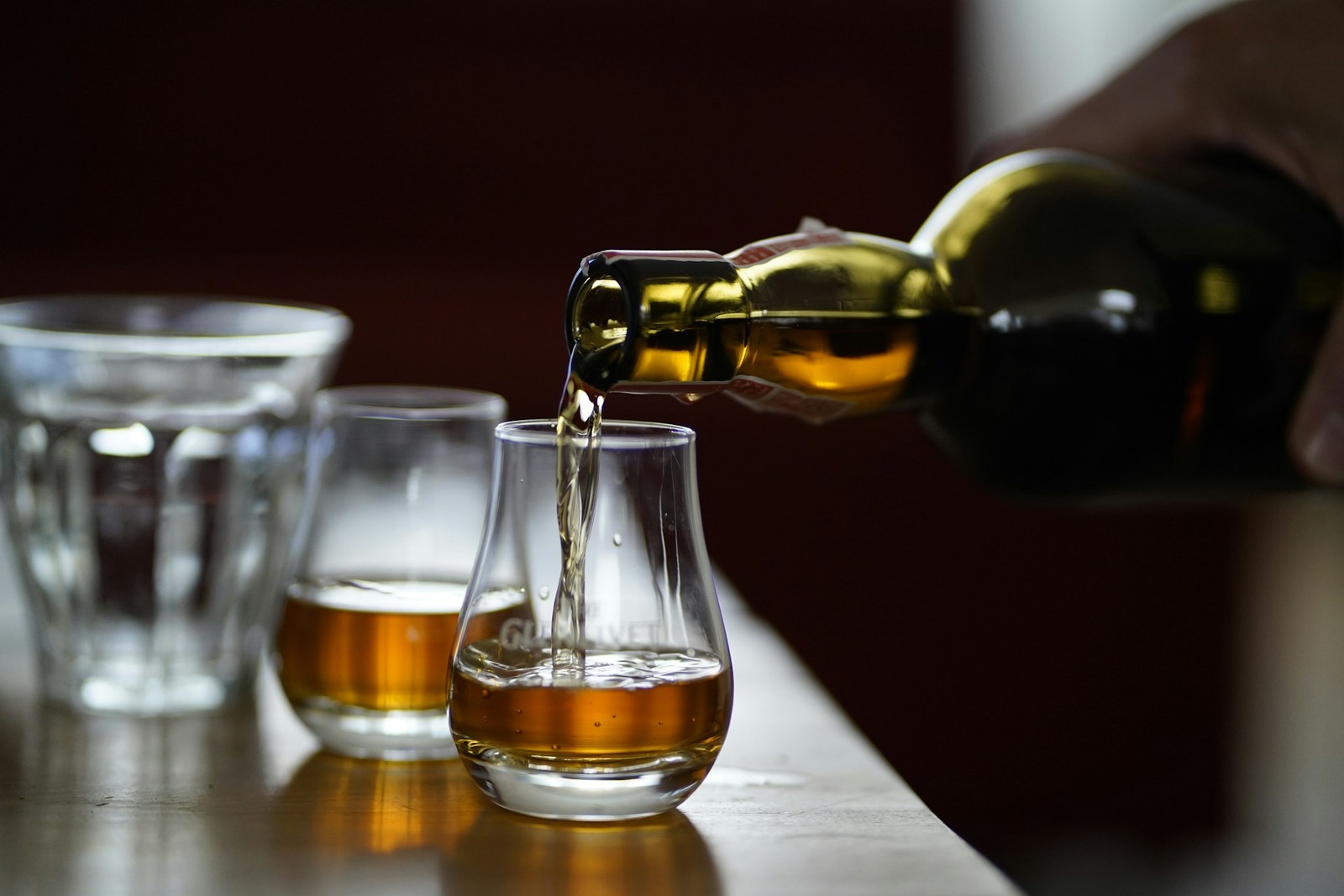Substances
Mixing Accutane and Alcohol: Know the Health Risks and Side Effects

Medically Reviewed By:
Written By:
Last medically reviewed February 19, 2024

Table of Contents
Key Points
- Mixing alcohol and Accutane is not recommended due to the potential increase in side effects and health risks.
- 1 in 5 deaths aged 20 to 49 each year is due to alcohol-related issues.
- 15% of patients on Accutane presented with liver abnormalities, even though they exhibited no symptoms.
- Accutane and alcohol share serious health risks and adverse effects, including liver damage, mental health problems, and the potential for birth defects.
- When Accutane and alcohol are taken together, these harmful effects and adverse outcomes may worsen.
The drug formerly known as Accutane was the brand name for the generic medication isotretinoin, which is administered as a treatment for persistent, treatment-resistant acne. Due to the dual risk of liver toxicity, mixing accutane and alcohol can be harmful and is not recommended.
Alcohol Facts: Effects, Health Risks, and Dangers
Drinking alcohol is typically a socially acceptable vice when consumed in moderation and when no substance or Alcohol Use Disorder (AUD) is present. One of the effects of alcohol is intoxication. The intoxicating element of alcohol is a byproduct of fermentation, where the natural sugars are converted into ethanol.
During the intoxicated state, it’s common to experience reduced inhibitions, a sense of relaxation or euphoria, and altered central nervous system (CNS) function (depressed breathing, heart rate, etc.) Drinking alcohol in excess (more than 4 or 5 drinks on a single occasion, CDC) puts extra strain on your liver and can lead to serious health risks over time.[1]
Long-term health risks of alcohol consumption include:[2]
- Liver disease
- Mental health concerns
- Heart disease
- High blood pressure
- Stroke
- Cancer
- Alcohol poisoning
- Increased risk of sexually transmitted diseases
- Poor pregnancy outcomes (Fetal alcohol syndrome (FAS))
Additional studies from the CDC reveal that excessive alcohol use can reduce one’s life expectancy by as much as 26 years, and 1 in 5 deaths aged 20 to 49 each year is due to alcohol-related issues.[3]
Alcohol Use and Your Liver

According to the National Library of Medicine, alcohol is the leading cause of liver disease, and the final, most acute stage of alcoholic liver disease is irreversible.[4] Additionally, only 30 to 50 grams of alcohol consumed each day is enough to cause alcoholic liver disease.[5]
Signs and symptoms of liver disease include:[6]
- Nausea, vomiting, and fever
- Abdominal pain
- Reduced appetite
- Weight changes
- Thirst
- Yellow eyes
- Weakness
- Confusion
- Sleep issues
- Mood swings
- Fainting spells
Accutane Drug Facts
The acne drug Accutane was removed from the market by Swiss drugmaker Roche Holding AG in 2009.[7] However, it is merely the brand name for the generic drug isotretinoin. This powerful medication is highly potent and prescribed primarily when other acne treatments have proved ineffective.
It is also used off-label to treat other skin disorders, including inflammatory skin conditions, genodermatoses, and skin cancer.[8] Isotretinoin is formulated from vitamin A, but in large doses, the vitamin can lead to toxicity. The prescription alternative offers a safer and highly effective treatment for persistent, severe acne, with results appearing as soon as one to two months.[9]
Health Risks and Side Effects of Accutane Use (Isotretinoin Use)
Despite its success as an acne treatment option, isotretinoin use is not without its risks. From pregnancy complications to allergic reactions, this medication is associated with several concerning health risks and common side effects: [10]
- Serious liver problems
- Acute risk of serious birth defects if pregnant (requires multiple birth control methods)
- Initial skin irritation or increased acne
- Decreased night vision
- Dryness in the nose, mouth, and eyes
- Increased skin sensitivity to the elements (sun, wind, cold, etc.)
- Emotional and behavioral changes (depression, suicidal thoughts)
- Vision loss
- Brain problems due to increased intracranial pressure
- Greater risk of Stevens-Johnson syndrome (skin condition)
- Joint pain
- Increased risk of facial scarring
- Altered blood sugar
- Higher risk of pancreatitis
- Hearing problems
- Inflammatory bowel disease
- Serious allergic reactions may include anaphylaxis
- Increased risk of bleeding and infections
- Negative interactions with other substances (medications, herbal supplements, vitamins, etc.)
Is it safe to drink alcohol while on Accutane? What are the risks?
Both alcohol and Accutane can negatively impact liver health, among other serious health concerns. When combined, their effects can be compounded. Due to the dual risk of liver damage and potential increase of effects, it is not recommended to mix Accutane and alcohol.
According to recent medical studies, 15% of patients on Accutane presented with liver abnormalities even though they did not exhibit any symptoms to indicate this was the case.[11] This same medical study shows that there may be the potential for liver resilience in the event of injury or abnormalities due to Accutane. Additionally, the way your body uses and processes this medication may have a direct toxic effect, especially with higher doses.[12]
Both substances can also negatively affect mental health (depression, mood swings, suicidal thoughts, general mental health concerns, etc.). When taken together, these effects could be exacerbated possibly leading to a reduced quality of life.
The rule of thumb is to consult your healthcare provider before mixing any medications or substances.
Potential Drug Interactions When Mixing Alcohol and Accutane
The long-term health risks of mixing Accutane and alcohol are merely part of the equation. When both substances are present in your system, they may negatively interact with each other and result in short-term unpleasant side effects, including:[13]
- Rapid heart rate
- Warm, red skin
- Tingling sensation
- Vomiting
- Nausea
Safety Tips While Taking Accutane
Always ask your healthcare provider before mixing any substances, medications, or supplements with other drugs or alcohol. Only take prescription medications as prescribed, in frequency, administration, and dosage. Due to the dryness experienced when taking Accutane, you may need additional moisturizer and sunscreen.
What does Accutane do to your skin?
How long after taking Accutane can I drink again?
Without knowing your medical history, the answer to this question will vary. Consult your physician before changing your medication schedule or drinking while taking Accutane. A general rule of thumb is to wait at least one month after you stop taking Accutane before drinking alcohol.
What else should I avoid on Accutane?
Always avoid any medication or dug crossover before consulting your doctor. During Accutane treatment, it’s recommended that you avoid unnecessary exposure to the sun, alcohol, supplemental Vitamin A sources, and additional acne treatments.
What does Accutane do to your skin?
Due to its effectiveness in treating acne, Accutane commonly causes dry skin and chapped lips, but these effects are expected to clear once the patient stops taking the medication.
There is a Better Way to Live. It's Time to Get the Help You Deserve.
Take the first step in getting your life back. Speak with our admissions team today.Sources
[1][2][3]Centers for Disease Control and Prevention. (2022c, July 11). Excessive alcohol use. Centers for Disease Control and Prevention. https://www.cdc.gov/chronicdisease/resources/publications/factsheets/alcohol.htm
[4][5][6]Patel, R. (2023, July 13). Alcoholic liver disease. StatPearls [Internet]. https://www.ncbi.nlm.nih.gov/books/NBK546632/#
[7]Roche stops selling Acne Drug Accutane | Reuters. (n.d.-c). https://www.reuters.com/article/idUSTRE55P53C/
[8][9]Drug design, development, and therapy. (2023, August 25). Oral isotretinoin and its uses in dermatology: A review. https://www.ncbi.nlm.nih.gov/pmc/articles/PMC10464604/.Accessed March 12, 2024.
[10]Mayo Foundation for Medical Education and Research. (2024b, February 1). Isotretinoin (oral route) precautions. Mayo Clinic. https://www.mayoclinic.org/drugs-supplements/isotretinoin-oral-route/precautions/drg-20068178
[11][12]U.S. National Library of Medicine. (2020, November 10). Isotretinoin. LiverTox: Clinical and Research Information on Drug-Induced Liver Injury [Internet]. https://www.ncbi.nlm.nih.gov/books/NBK547857/
[13]Accutane and alcohol/food interactions. Drugs.com. (n.d.-a). https://www.drugs.com/food-interactions/isotretinoin,accutane.html
